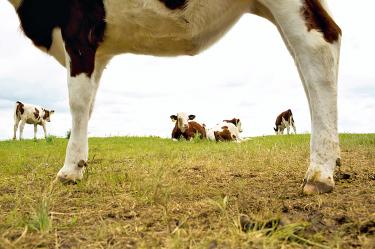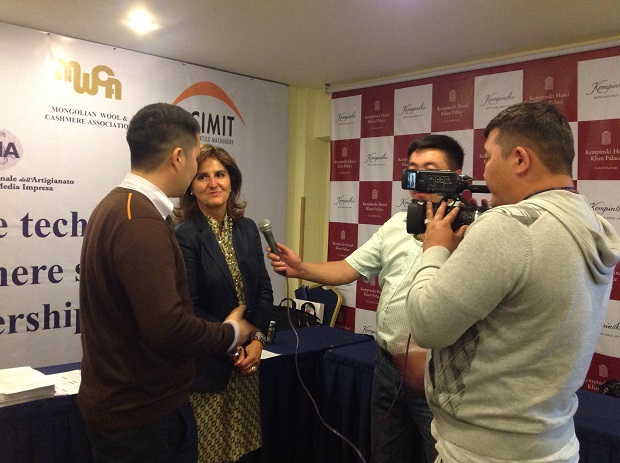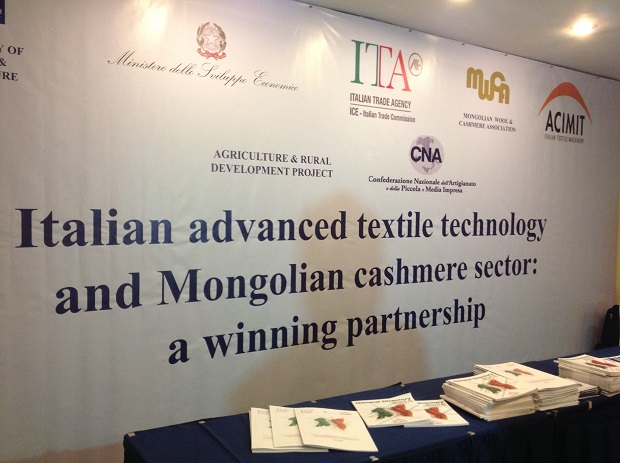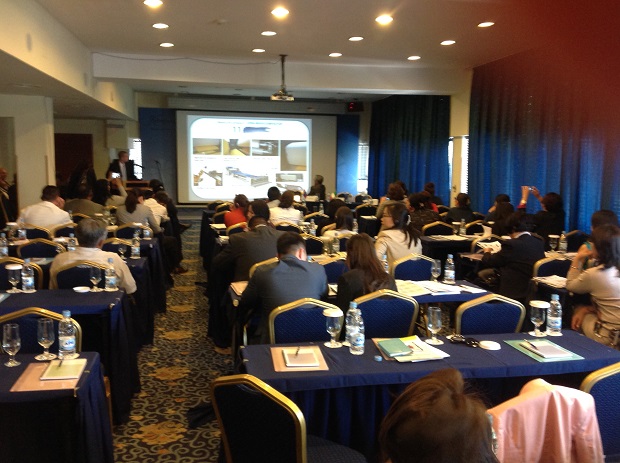Vancouver, BC – July 29th, 2014 – Kincora Copper Limited (the “Company”, “Kincora”) (TSXV:KCC) provides an update on the 106-license dispute, relating to the revocation of mineral exploration licenses in late 2013. On July 4th, the Mongolian Government approved Resolution #216 and is Appendix (“Resolution #216”) relating to the 106-licenses dispute to “settle in a manner with no damage to the State and the license holder for the purpose of granting a new licenses, in accordance with the Minerals Law to issue through tender”. The Mining Minister, Gankhuyag.D, has been assigned to organize and monitor the tendering for 106-license areas in accordance with relevant laws and regulations. Resolution #216 follows the approval by the Mongolian Parliament of the amendments to the Minerals Law on July 1st.
Under the approved Resolution #216 former license holders and other third parties will re-tender for the previously revoked licenses on a competitive tender basis, where an initial re-tendering price shall be effectively determined by costs incurred by the former license holder(s). Resolution #216 doesn’t differentiate between former license holders and other third parties. Detailed implementation procedures are pending but such a proposed resolution is not in-line with previous guidance from senior Government officials and current public statements. Kincora and the association of active former license holders (Ашигт малтмалын тусгай зөвшөөрөл эзэмшигч хохирогч компаниудын холбоо) continue to seek active dialogue with appropriate Government officials to work towards an outcome in the interests of all stakeholders.
In its September 2013 quarterly accounts, Kincora wrote off C$6,952,000 relating to the 15075X (Tourmaline Hills) and 15076X (North Fox) licenses, which were revoked as part of the 106. Kincora’s two licenses were acquired from a private Canadian group in 2012, following full due diligence, and are lower priority exploration licenses adjacent to our flagship Bronze Fox project. Bronze Fox remains unencumbered and Kincora is currently actively undertaking field season activities including drilling at advance large scale copper porphyry targets that are situated towards the centre of the existing license. We are confident our revoked licenses will be returned.
Commenting on today's announcement, Sam Spring, President and CEO of Kincora, said:
"The ongoing dispute continues to have a significant impact beyond just the 106-licenses and the exploration sector/amended Minerals Law, with security of tenure, a transparent and consistent legal and legislative environment being key cornerstones for all private sector activities. Investors are watching to see what the outcome of this dispute is and, as is, Resolution #216 undermines the relatively limited, and broadly positive, amendments to key items of the existing Mineral Law. The proposed competitive tender process contradicts the positive move toward a direct application, “first come, first served”, approach adopted under the amended Minerals Law and is at odds with recent proposed reform aimed at encouraging private sector activities, reviving the minerals sector and Mongolian economy.
Kincora in conjunction with the association of active former license holders continues to actively lobby and proactively approach the Ministry of Mining and appropriate Government officials to achieve a win-win solution for all stakeholders. The Company’s core focus remains ongoing exploration activities at our flagship Bronze Fox license”.
Under the approved Resolution #216 former license holders and other third parties will re-tender for the previously revoked licenses on a competitive tender basis, where an initial re-tendering price shall be effectively determined by costs incurred by the former license holder(s). Resolution #216 doesn’t differentiate between former license holders and other third parties. Detailed implementation procedures are pending but such a proposed resolution is not in-line with previous guidance from senior Government officials and current public statements. Kincora and the association of active former license holders (Ашигт малтмалын тусгай зөвшөөрөл эзэмшигч хохирогч компаниудын холбоо) continue to seek active dialogue with appropriate Government officials to work towards an outcome in the interests of all stakeholders.
In its September 2013 quarterly accounts, Kincora wrote off C$6,952,000 relating to the 15075X (Tourmaline Hills) and 15076X (North Fox) licenses, which were revoked as part of the 106. Kincora’s two licenses were acquired from a private Canadian group in 2012, following full due diligence, and are lower priority exploration licenses adjacent to our flagship Bronze Fox project. Bronze Fox remains unencumbered and Kincora is currently actively undertaking field season activities including drilling at advance large scale copper porphyry targets that are situated towards the centre of the existing license. We are confident our revoked licenses will be returned.
Commenting on today's announcement, Sam Spring, President and CEO of Kincora, said:
"The ongoing dispute continues to have a significant impact beyond just the 106-licenses and the exploration sector/amended Minerals Law, with security of tenure, a transparent and consistent legal and legislative environment being key cornerstones for all private sector activities. Investors are watching to see what the outcome of this dispute is and, as is, Resolution #216 undermines the relatively limited, and broadly positive, amendments to key items of the existing Mineral Law. The proposed competitive tender process contradicts the positive move toward a direct application, “first come, first served”, approach adopted under the amended Minerals Law and is at odds with recent proposed reform aimed at encouraging private sector activities, reviving the minerals sector and Mongolian economy.
Kincora in conjunction with the association of active former license holders continues to actively lobby and proactively approach the Ministry of Mining and appropriate Government officials to achieve a win-win solution for all stakeholders. The Company’s core focus remains ongoing exploration activities at our flagship Bronze Fox license”.
On another note, Kincora announced that Jonathan (Sam) Spring, the Company’s President and CEO, has joined as a member of the Board of Directors effective immediately.Sam joined the Company in August 2012, and is formerly a Senior Mining Analyst with over 10 years financial services experience across various disciplines within the
Goldman Sachs Group and Ocean Equities Ltd (now part of Pareto Securities). Sam has a commerce degree from the University of Melbourne, is a Chartered Accountant (ICAA) and CFA Charterholder.
Source:Kincora Copper












